Resource Efficiency - Materials
Risk to material supply, either through scarcity or security of access, is increasingly highlighted in reports by the UN, EU and national governments prompting calls for better material resource efficiency, although many material resources essential to construction remain abundant.
The impact of the extraction and use of materials through the supply chain is therefore under greater scrutiny - can more can be done with less through actions such as better design, less waste at installation and through open and closed loop recycling? Material stewardship concerns have also led to the development of responsible sourcing schemes giving transparency to environmental and social concerns.
Company level
Principal means of evidence reporting by manufacturers
ISO 14001:2015 provides a framework for companies and organisations, regardless of activity or sector, seeking to set up an effective environmental management system.
The ISO 14000 family of standards is developed by the ISO Technical Committee ISO/TC 207 and its various sub-committees.
BRE's BES 6001 is a certification scheme for the responsible sourcing of construction products. To a degree a hybrid between product and company-level certification, it sets out requirements within three key areas:
- Organisational management
- Supply chain management
- Environmental and social issues
The scheme focuses primarily on material traceability through supply chains and the assessment of greenhouse gas emissions and energy use.
A BES certification amongst responsible sourcing certifications may boost material credits within BRE’s BREAM Building Rating Scheme.
Secondary means of evidence reporting by manufacturers
GRI sustainability reporting provides information on an organisation's critical impact on the environment, society and economy. The environmental category encompasses impacts relating to inputs (eg energy and water) and outputs (eg emissions, effluents, waste.) It also takes in biodiversity, transport, product and service-related impacts, together with environmental compliances and expenditures.
G4 includes GRI 303: Water 2016 which sets out reporting standards for organisations of all sizes and across all sectors on water usage and output.
GRI reporting is not commonly used by UK-based construction product manufacturers.
Product level
Principal means of certification
The measurement of the environmental impact of construction product manufacture is measured by a Life Cycle Assessment (LCA). The methodology for measuring these environmental impacts has now become a European standard – EN 15804 - and this produces an Environmental Product Declaration (EPD).
The EPD measures a range of impacts, several of which relate to material resource efficiency:
- Abiotic Resource Depletion Potential for Elements (kg Sb equiv.)
- Abiotic Resource Depletion Potential of Fossil Fuels (MJ)
Lists of products that have an EPD can be found at:
- http://www.eco-platform.org/list-of-all-eco-epd.html
- http://www.environdec.com/
- http://www.greenbooklive.com/search/scheme.jsp?id=260
EN 15804 took several years to prepare by a number of Technical Committees convened under CEN – the European Committee for Standardization. Drafts of the emerging standard were reviewed by Technical Committees convened by National Standards bodies, which in the UK is BSI, the British Standards Institution.
National LCA methodologies existed prior to the issuance of the European standard. In the UK, the Building Research Establishment (BRE) had devised a LCA methodology which underpinned its Green Guide to the impact of building elements which in turn has been a major part of the Materials credit in the BREEAM Building Rating Scheme. BRE has now updated its methodology so it is in compliance with EN 15804.
The formal title of the European Standard is BS EN 15804:2012 – Sustainability of construction works: Environmental product declarations. Core rules for the product category of construction products.
BES 6001 is a certification scheme for the responsible sourcing of construction products. It is owned by BRE.
The scheme sets out requirements under 3 main headings:
- Organisational management
- Supply chain management
- Environmental and social issues
To some extent it is hybrid between product and company-level certification.
The emphasis of the scheme is on material traceability through supply chains but it also assesses company management of resource use.
The scheme has gained some traction in the marketplace. BRE provides a list of all current BES 6001 certificates on its website. These are arranged by construction product category and the rating achieved by each company.
First issued in 2008, the scheme is now on Version 3 which was issued in May 2014.
Within BRE's BREEAM Building Rating Scheme, some Material Credits can be gained from having a BES 6001 certification (as well as from other responsible sourcing certifications).
Set up in the 1990s, the Forest Stewardship Council (FSC) was one of the first of the material stewardship certification schemes. The system allows consumers to identify, purchase and use wood, paper and other forest products produced from well-managed forests and/or recycled materials. The FSC sets standards for what is a responsibly managed forest, both environmentally and socially, and has two key elements: Forest Management and Chain of Custody.
FSC has considerable market recognition and maintains an online database of FSC Certificate holders.
PEFC is an alternate forest certification scheme to FSC. PEFC has recognised certification systems in over 40 countries representing over 300 million hectares of certified forests, making it the world’s largest forest and wood product certification system.
PEFC has market recognition and maintains an online database of certificate holders.
CARES is an independent, not-for-profit certification body, established in 1983 and accredited by the UK Accreditation Service (UKAS) to provide product and management systems certification for companies that produce steel materials, components or offer services, primarily to the reinforced concrete industry.
The CARES Sustainable Constructional Steel (SCS) scheme provides independent certification of the environmental performance of steel products. It operates in compliance with BS 8902:2009 Responsible sourcing sector certification schemes for construction products. Constructional steel products from CARES-approved suppliers are fully traceable, allowing an assured chain of custody from mill to site.
In 2016, CARES became a BRE licensee to provide certification to the BES 6001 Responsible Sourcing Scheme. Procedural enhancements mean producers and fabricators can now follow a combined certification process together with the SCS Scheme.
Eco-Reinforcement is a third-party certification scheme which assesses and recognises responsibly sourced reinforcing steel products. It has been developed as a sector-specific standard which complies with the requirements of BRE's BES 6001 Framework Standard for the Responsible Sourcing of Construction Products.
A list of certified companies is available on its website.
Secondary means of certification
This is the International standard for measuring the environmental impact of building products and producing an Environmental Declaration for building products.
It is very similar to the European Standard EN 15804 for Environmental Product Declarations (EPD). An agreement between the International Standards body and the European Standards body means that the two standards evolve in tandem. A new version of the standard is expected in 2017.
The standard includes a number of indicators relating to material use.
ISO 14025:2006 establishes the principles and specifies the procedures for developing Type III environmental declaration programmes and Type III environmental declarations. It specifically establishes the use of the ISO 14040 series of standards in the development of Type III environmental declaration programmes and Type III environmental declarations.
Type III environmental declarations as described in ISO 14025:2006 are primarily intended for use in business-to-business communication, but their use in business-to-consumer communication under certain conditions is not precluded.
This ISO standard is applicable to any EPD for any sector; for construction products, the International standard 21930 and the European standard EN 15804 meet the requirements of ISO 14025.
This British standard on responsible sourcing of construction products was issued in 2009 as an alternative in the marketplace to the BRE’s BES 6001 scheme. It provides guidance on how to set up a responsible sourcing scheme - what needs to be put in place administratively, and then what issues the scheme needs to address.
The standard is applicable only at the sector level and cannot be pursued by single companies. This has severely limited its take up. To date only one sector - UK Cares - has sought certification to the standard.
SFI Inc. is an independent, nonprofit organization dedicated to promoting sustainable forest management. It operates a forest certification standard based on principles that promote sustainable forest management, including measures to protect water quality, biodiversity, wildlife habitat, species at risk, and Forests with Exceptional Conservation Value.
The standard is used widely across North America and also has global presence.
SFI maintains an online database of certified forest, products and companies.
According to its website: The Cradle to Cradle CertifiedCM program is a third party, multi-attribute eco-label administered by the Cradle to Cradle Products Innovation Institute that assesses a product's safety to humans and the environment and design for future life cycles.
The scheme has some traction in the retail sector and is trying to gain profile in the construction products sector.
The program provides guidelines to help businesses implement the Cradle to Cradle framework, which focuses on using safe materials that can be disassembled and recycled as technical nutrients or composted as biological nutrients. The materials and manufacturing practices of each product are assessed in five categories: Material Health, Material Reutilization, Renewable Energy Use, Water Stewardship, and Social Responsibility.
There is an emerging trend for clients to separate out the concept of responsible sourcing (which perhaps has more of an environmental focus) from ethical sourcing which focuses more on social issues in the workplace including for instance child labour, a living wage, the right of free association, modern slavery etc.
The Ethical Trading Initiative (ETI) is an alliance of companies, trade unions and NGOs that promotes respect for workers' rights around the globe. It has developed the ETI Base Code founded on the conventions of the International Labour Organisation (ILO) and this has become an internationally recognised code of labour practice. Companies with a commitment to ethical trade can adopt the ETI code of labour practice.
For construction products, the ETI runs a programme with partners to improve conditions for workers quarrying red sandstone in Rajasthan, India and exported overseas.
Resource Efficiency Action Plans (REAPs) are an initiative by the UK construction products sector. They are produced by material specific committees which bring together manufacturers, installers and contractors to address the efficient use of materials through the supply chain. Over ten plans have been produced since 2009.
Although not third party certified, the REAPs provide a detailed review of the challenges faced by different material sectors and the actions they and others need to take to improve resource efficiency and reduce waste. Examples of REAPs include: Pre-cast Concrete, Ready-mixed concrete, Bricks, Blocks & Concrete; Mineral Ceiling Tiles, and Paint.



